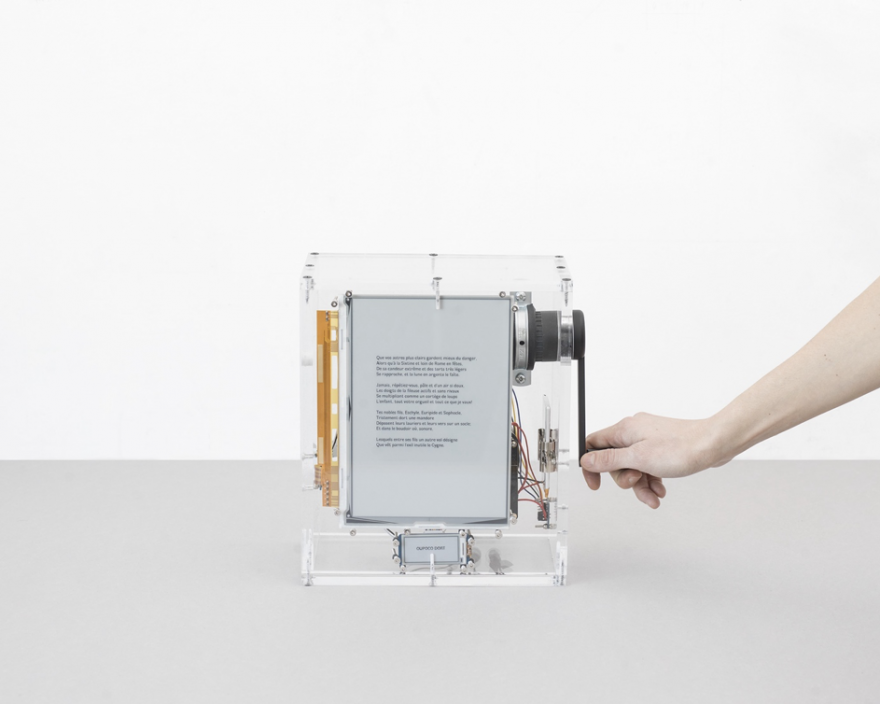
Breadcrumb
- Home/
- Research/
- Research projects/
- Oupoco, the Combinatorial Poetry Workbench (l’ouvroir de poésie combinatoire)

Oupoco is a project aiming to generate an infinite number of sonnets from a database of 19th century poetry. The project is inspired by Queneau’s book One hundred thousand billion poems.
Oupoco (L’ouvroir de poésie combinatoire) is a project taking inspiration from RaymondQueneau's book Cent mille mille milliards de poèmes, published in 1961. Queneau’s book is a collection of ten sonnets which verses can be freely recombined to form new poems. It would be tempting to develop a computer-based version of Queneau’s work, but Queneau’s book is still under copyright, and it is by definition limited to its ten original sonnets.
To overcome this problem, we developed the Oupoco project, aiming at proposing a sonnet generator based on the recombination of a large collection of 19th century French sonnets. The challenge is thus more complex than the one proposed originally by Queneau since our sonnets do not have the same scansion and rhyme. From this point of view, even if the project is intended to generate new sonnets, it is largely based on the development of analysis tools able to identify the scansion, the rhyme and the structure of the original sonnets. It is thus very different from the numerous projects dedicated to the pure generation of poetry, being with symbolic or neural methods.
Oupoco is currently based on a collection of around 4000 sonnets from a large number of authors from the 19th century, and this database is regularly expanding (thanks to collaboration, especially with the Bibliothèque nationale de France). Each sonnet is encoded in a XML format along with related metadata, and a TEI version of the database is available. The project requires to get access to a formal representation of rhymes. In order to do this, the first step is to get a phonetic transcription of the last word of each verse, but this is not enough : a series of rules had thus to be defined to get a proper analysis of rhyme from the phonetic transcription of the last word of each verse. The generator uses this analysis to produce random sonnets, with different possible structures, respecting the rules of French versification (the code and the resources used, especially the sonnet database, are open source and freely available for research).
A series of “side products” have been produced from the project, including:

The main interest of the project is to present French poetry through a new and original setting. With our system, poetry is not any more just a literary, but a dynamic object that can be manipulated and experienced. For lots of people, poetry is seen at best as something related to school years, at worse as something boring and uninteresting from the past. Our new setting, in itself, makes it possible to show that playing with poetry can be fun.

Team
- Thierry Poibeau, CNRS & ENS/PSL, director
- Frédérique Mélanie-Becquet, Lattice, coordination, mise au point de la base de données
- Clément Plancq, Lattice, responsable des développements
- Développement : Mylène Maignant, Claude Grunspan, Lattice
- Direction artistique : Atelier Raffard-Roussel
- Site web : META - Timothée Rolin
Follow the project on Twitter